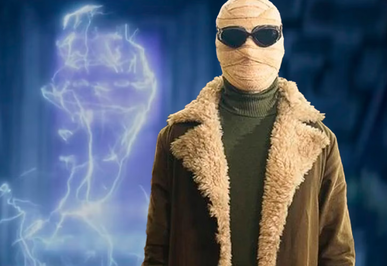Current research
Jewish identity and the comedy of Sarah Silverman

Based on a plenary paper on Jewish Comedy presented at the Western Jewish Studies Association Conference of 2023, I am at work on a journal-length article addressing Sarah Silverman's self-presentation of Jewish American identity in filmed stand-up, television, and podcasts. I posit that her ignorant comic persona and focus on issues of race and Jewishness (including Holocaust humor, blackface, and the concept of "Jewface") signify important if problematic attempts to construct through performance a secular Jewish American identity that reads Jewishness as race and problematizes a conception of identity based solely on oppression.
Larry Trainor and the Queer Spirit of HBO's Doom Patrol

, I am at work on a book chapter considering gender and sexuality in the HBO series Doom Patrol with emphasis on the character of Larry Trainor. The chapter is to be published in a Bloomsbury collection on SF TV masculinities.
I posit that Trainor's complex life story in the series encourages a denaturalization of gender and sexuality through both human and human-alien interactions. The character is at various times a closeted homosexual, an insecure dominant, a gender-neutral "invisible man," and an asexual maternal figure. These multiple gender transformations offer a compelling conceptualization of gender within the speculative milieu of the series, where queerness is enhanced by proximity to even more expansively conceptualized characters, including Crazy Jane, Maura Lee Korupt, and Danny the Street.
I posit that Trainor's complex life story in the series encourages a denaturalization of gender and sexuality through both human and human-alien interactions. The character is at various times a closeted homosexual, an insecure dominant, a gender-neutral "invisible man," and an asexual maternal figure. These multiple gender transformations offer a compelling conceptualization of gender within the speculative milieu of the series, where queerness is enhanced by proximity to even more expansively conceptualized characters, including Crazy Jane, Maura Lee Korupt, and Danny the Street.